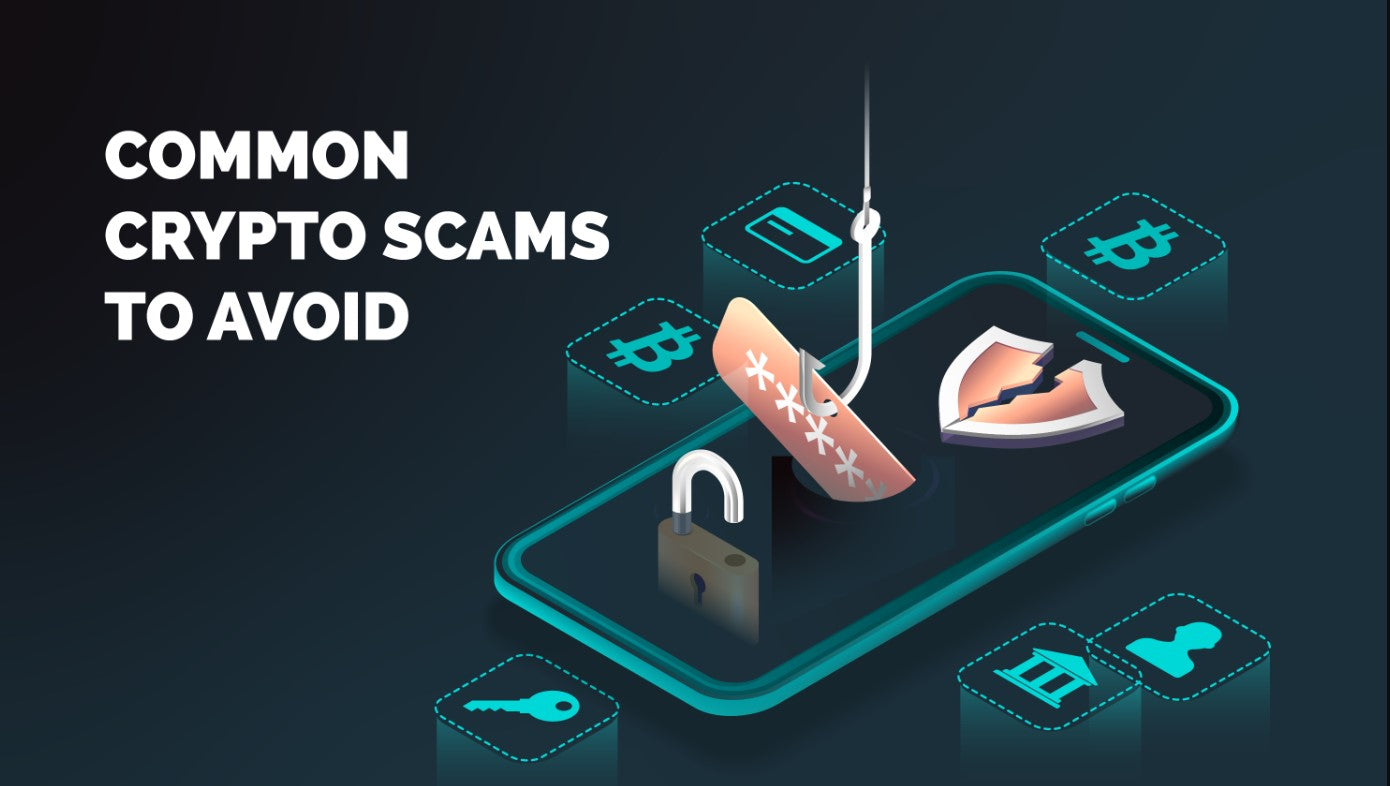Crypto Scams: Reduce The Risk Of Crypto Scams
Scammers use cryptocurrencies, like bitcoin or ether, because they are not easily recovered. Crypto can be sent overseas quickly with limited oversight.
Crypto is a volatile investment. The value can go up or down quickly and there are no guaranteed returns.
If you lose your money to a crypto scam, your money is likely gone. If you buy crypto, only invest what you can afford to lose.
How to spot a crypto scam
If you're investing in crypto, watch out for these potential red flags.
Unexpected contact
Someone you don’t know contacts you with investment advice or offers:
- through phone, email, social media or text message
- claiming to be an investment manager or broker
- through an online forum discussing crypto
Recommendations from someone familiar
You may hear about it through:
- an advertisement or fake celebrity endorsement on social media
- an online influencer promoting a token and claiming to have made huge, quick profits
- family and friends who have unknowingly been scammed themselves
- an online romantic partner who asks for money paid in crypto or suggests an investment opportunity
Pressure to take action
You are being pushed to:
- transfer crypto off your current exchange and invest through their site
- use crypto to pay an individual or for a financial service
- download an investment app not listed on Google Play Store or Apple Store
- deposit money to invest into different bank accounts
- pay tax or invest more in order to access your funds
Something just doesn’t feel right
You’re not sure about:
- the crypto investment offers 'guaranteed' high returns or 'free' money
- crypto service providers that withhold investment earnings for 'tax purposes'
- strange tokens appear in your digital wallet that you did not trade yourself
- there is little paper trail for crypto investments you make
- the document describing the crypto investment (sometimes called a ‘whitepaper’) is poorly written or non-existent
- online searches indicate that an entity may be a scam or has bad reviews
- a work from home job offer that requires you to purchase cryptocurrency
How crypto scams work
There are three main types of crypto scams:
- investing in a fake crypto exchange, website or app
- fake crypto tokens, investments or jobs trading crypto
- using crypto to pay scammers
Fake trading platforms or crypto wallets
These may mimic a real online exchange or wallet, but can work in different ways:
- Phishing webpages – These capture the details you enter, so the scammer can log in later and steal your crypto. They may also send links via phishing emails or pretend to be official customer support in direct messages.
- Investment opportunity – You use their platform to trade or mine crypto. Initially, your crypto goes up in value, so you invest more. But then they lock you out, close the site and disappear with your money.
Fake crypto trading apps
Scammers create fake crypto trading apps to steal your money. The giveaway is usually that they ask you to download the app from their website. They may appear on legitimate platforms like Google Play and Apple, but are usually promptly removed. If you find one on an app store, check for overly positive reviews and be cautious.
Fake crypto tokens, investments or trading jobs
Scam tokens in crypto wallets – A mystery token appears in your crypto wallet, seemingly worth thousands. If you sell it, a 'smart contract' is activated. This transfers your legitimate crypto tokens and private keys to the scammer.
Initial Coin Offering (ICO) 'rug pull' scam – Similar to a pump and dump scam
in a rug pull crypto scam or is hyped through marketing and social media. When the amount invested reaches a certain level, the scammer cashes out the coins and disappears. With the liquidity gone, the value plummets and your coins are worthless.
Crypto ponzi scheme – You are promised large ‘returns’ by investing in crypto. But the promoter uses money from other investors to pay your ‘earnings’.
Jobs 'trading crypto' – You apply for a job ad for 'crypto traders', for a fake or impersonated financial services firm. You are told to set up multiple bank and crypto accounts, and are paid well for a few hours of work a week. You think you're trading crypto for the entity’s ‘investors’ or ‘clients’, but you're actually money laundering for the scammers. You could be charged by state or federal police.
Baiting interest via crypto – You read an article about a celebrity-endorsed trading software program for crypto. This turns out to be a baiting tactic. You‘re led to a website, generally based overseas, to sign up for a high-risk financial product that is not crypto.
Using crypto to pay scammers
Requests for payment in crypto – An online romantic partner, job recruiters, work from home job, or fake financial services firm asks for payment in crypto only.
Giveaway scams – Fraudulent posts on social media offer to match or multiply crypto invested with them in a crypto giveaway scam. Often, this uses fake celebrity endorsement.
Blackmail/extortion – You're told by a scammer they have your internet browsing history, compromising photos or videos. They demand payment in crypto.
Look out for scams if you invest in crypto
Scammers are skilled at convincing people to part with their money by overpromising and using flashy marketing. Here are some ways to be alert to crypto scams:
- Always question social media ads and celebrity endorsements promoting crypto.
- Search for the token or crypto exchange name on Google, with the word 'scam', ‘review’ or 'warning'.
- Read the whitepaper for new coins. Check for spelling mistakes. Search for information about people involved in the project. Look for proof of any claims of large partnerships.
- Read websites carefully. Verify listed addresses or phone numbers. Look for spelling mistakes. Be wary of a promise of large instant rewards if you sign up now, or large returns over a short period of time.
- Beware of requests for payment in crypto. It is unlikely that any legitimate financial services firm will ask you to pay exclusively in crypto. Be wary of any recruiter or online romantic partner who asks for a crypto payment.
- Be alert if someone offers ‘high returns’ for ‘low risk’ crypto investments.
- Look for the AUSTRAC registration number. Digital currency exchanges in Australia are registered with AUSTRAC. Look for the registration number on the exchange website.
If you're already investing in crypto:
- Use a private Wi-Fi network to connect to your crypto account or wallet. Scammers can intercept information sent over public Wi-Fi.
- Never interact with a token you didn't trade, if it suddenly appears in your wallet
- Be careful when installing browser add-ons or software that links your crypto holdings. There is legitimate software that performs this task, but there are also many scams that look legitimate.
If you do these checks, it could still be a scam. Be alert and remember if something looks too good to be true, it probably is.

